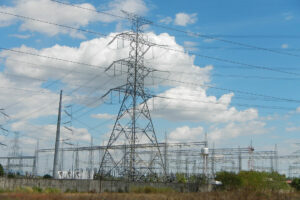Gov’t urged to prioritize power grid projects

By Kenneth Christiane L. Basilio
ADDRESSING weaknesses in the power sector — as exposed by the past week’s red and yellow alerts issued by the National Grid Corporation of the Philippines (NGCP) — must be prioritized by the government, a coalition of energy consumers and stakeholders said over the weekend.
Nic Satur, Jr., chief advocate officer of Partners for Affordable and Reliable Energy, said these incidents must move the government to prioritize the implementation of delayed NGCP grid projects, particularly in areas hit by last week’s power supply problems.
“Red and yellow alerts in the Philippine energy sector indicate critical issues with power supply,” Mr. Satur said in a statement sent to BusinessWorld. “These alerts are crucial indicators of the stability and reliability of the energy infrastructure.”
He was referring to last week’s NGCP alerts in the Luzon and Visayas grids due to thin power supply as operating margins for electricity output were insufficient to meet its regulating requirement.
To mitigate weaknesses in the energy sector, Mr. Satur echoed a previous proposal made by Bienvenido S. Oplas, Jr., president of think tank Minimal Government Thinkers, urging the government to implement delayed NGCP grid projects such as the Visayas Voltage Improvement Project and the Cebu-Lapu-Lapu Transmission Project to improve electricity access in the region.
“Finishing long-delayed NGCP projects will ensure that areas with power deficits can access surplus energy from other regions, stabilizing the grid,” he said.
The NGCP did not immediately respond to a request for comment from BusinessWorld.
The energy advocate stressed that the country have to contend with red and yellow power alerts every summer due to “unscheduled power plant shutdowns, lack of firm ancillary services, (and) overall insufficient power supply significantly worsened by the El Niño phenomenon.”
The reliance of the country on imported energy resources such as fuel and coal exposes the country to “frequent issuance of red and yellow alerts,” he added.
He said accelerating the adoption of nuclear energy into the country’s power generation mix could enhance the grid’s capacity to meet electric consumer demand. “(It is) a stable and reliable energy source that does not depend on external market conditions,” he said.
Mr. Satur also recommended that the government increase the overall power generation to seven to eight terawatt hours (TWh) every year until 2026 and by eight to nine TWh subsequently until 2030, a proposal also raised by Mr. Oplas.
“To combat the recurring energy alerts, there is a pressing need to increase overall power generation,” he said. “This expansion is essential to keep up with the anticipated gross domestic product growth and the increasing energy demands of the population.”
The Energy Regulatory Commission (ERC) should also look to prohibit the use of battery energy storage systems due to their “limitations and unreliability in critical situations,” he said.




